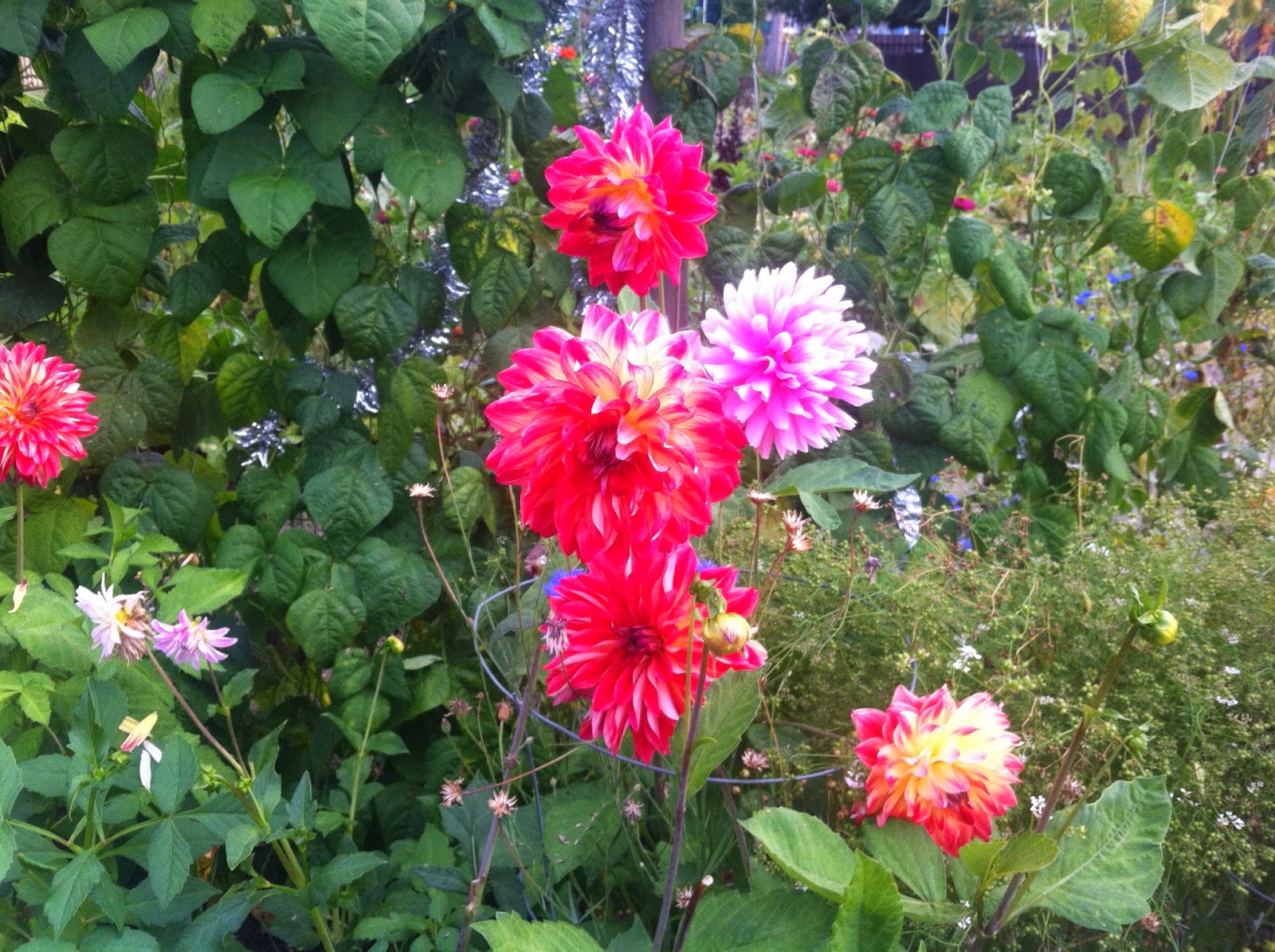The silence around here has not been intentional. I (as usual) have overestimated my obligations, administrations (oh! the phone calls!), and stress my body can take with a move. This past one was international and I think aside from driving 1800 miles with 2 kids and 2 vehicles in 3 days, it has been 'the dooziest', if that were a word.
When duties got too overwhelming or I had listened to one too many automated services for one day, I would bury my head
*What the Living Do by Marie Howe was recommended by one of my favorite journalists, Krista Tippett, on her NPR segment, On Being. I've actually listened to this podcast three times now (with Marie) because I am so inspired by how she teaches her students to notice, and to not make metaphor with their observations. For a poetry instructor, that's a rare stance. This collection was mostly about family, her brother John, specifically, who lost his life to AIDs in 1989. Beautiful, sad, nostalgic writing.
*Interuppted by Jen Hatmaker was brought to my attention via facebook. I follow Hatmaker on facebook for her witty rants and sincere love for the marginalized in her hometown of Austin, TX. She has numerous books out including bestseller 7, which I read years ago, and wrote the other day, 'people ask me which book of mine they should read, and I always tell them Interuppted' and so I thought I'd read it, since I enjoy her voice. It is sort of the memoir/manifesto of Austin New Church (ANC) and how her and her pastor/husband Brandon came to change their consumer ways, throw all that away in the midst of major wonderings and panic attacks, and grip on to grace as the only way. Really good.
*The Legend of Sheba: The Rise of a Queen by Tosca Lee is the author's fourth single novel written as biblical historical fiction. I rarely read fiction but when I do I love to loose myself in historical fiction. I've always had a thing for it and honestly since I was about 9 or 10 I would consistently choose the Dear America diairy series over any other books for young adults. I have read all of Tosca's book (she's local, Lincolnites!) and I love them. Her writing and research gets stronger with each book and although biblical + fiction seems to be an oxymoron for a Christian, they are so well done. This story was about the legend of the queen of Sheba and Solomon, and their meeting as sovereigns in ancient history. Not much is mentioned about Sheba in the bible (I had actually just read the part where she is mentioned right before I picked this up, how coincidental!) but it is believed that Solomon and her had a child who ruled as King of Ethiopia (later called) and their blood line ran for 3,000 years until Haile Selassie passed. This story has everything an historical fiction lover could want (mention of true people, documents, artifacts and descriptions of places long lost) along with strong female character and on par writing. I can't wait for her next one!
*The Kingdom of Ordinary Time by Marie Howe was her second book I had put on hold and although I enjoyed a few of the poems from this book immensely, I didn't find that the overarching theme of the book was easy to find. The book didn't flow as well as the last, though that could have been I was reading it quickly, and in between car trips. It was short, and of course Howe's poetry is clever (or she wouldn't be New York's poet laureate) but this wasn't my favorite.
*Outliers by Malcolm Gladwell is the kind of nonfiction I was born to read and enjoy. I don't know what took me quite so long to finally go through one of his books, but I absolutely know I want to read every other book he's written. This kind of social/cultural nonfiction mysteries are right up my alley. Outliers looks at what makes success, and even the prologue is fascinating. I was often stopping to re-read sections to Stefan out loud and when I'd finish with the excerpt, I'd ask, "Isn't that fascinating?" to which he always replied yes. It's not just me, Gladwell's writing is fabulous, accessible, interesting, and academic (citing study after study and doctor after doctor within different fields) and they really read like a mystery novel. You want to keep going at the end of each chapter to find out how it all fits together.

Comments